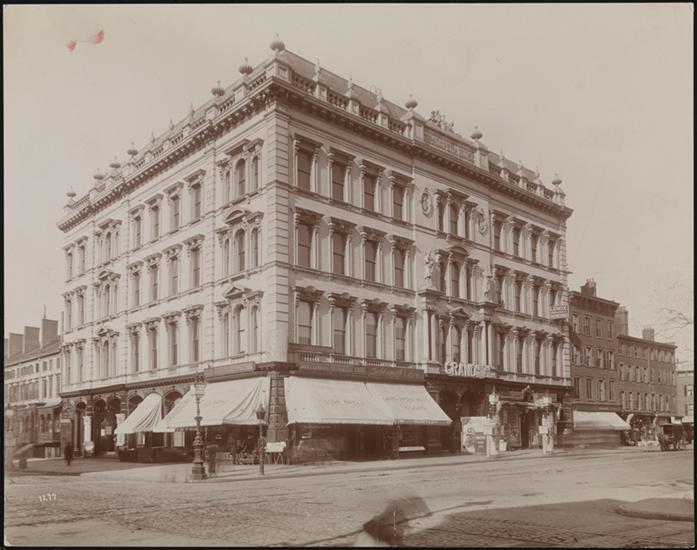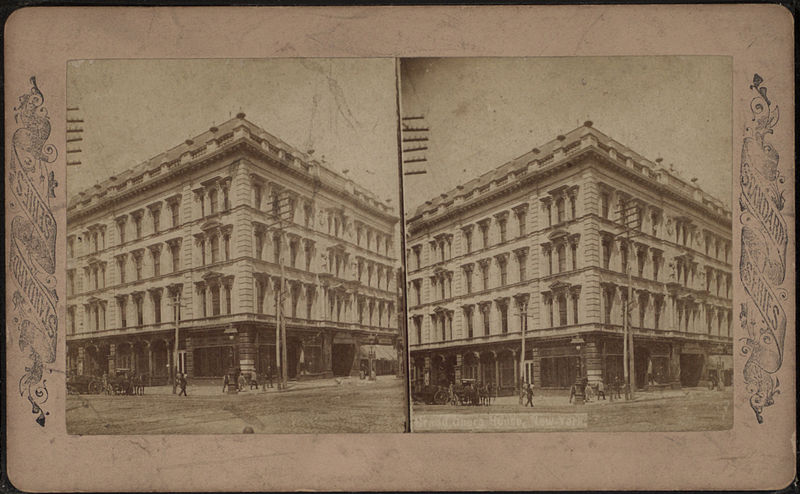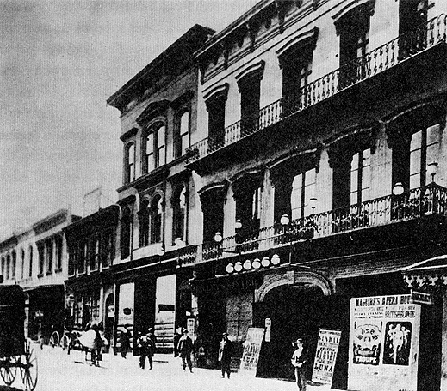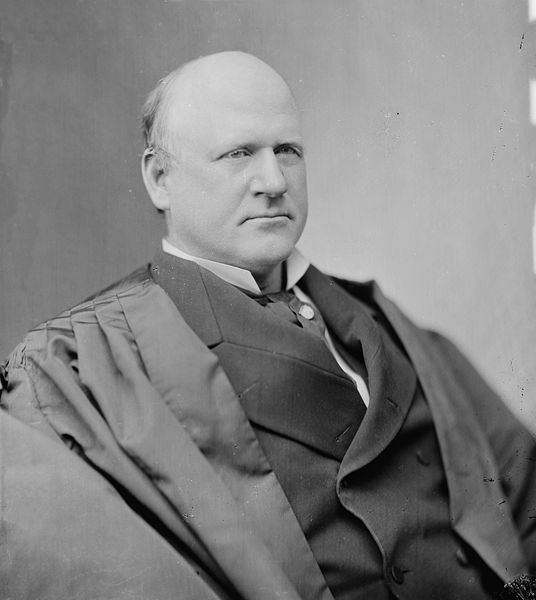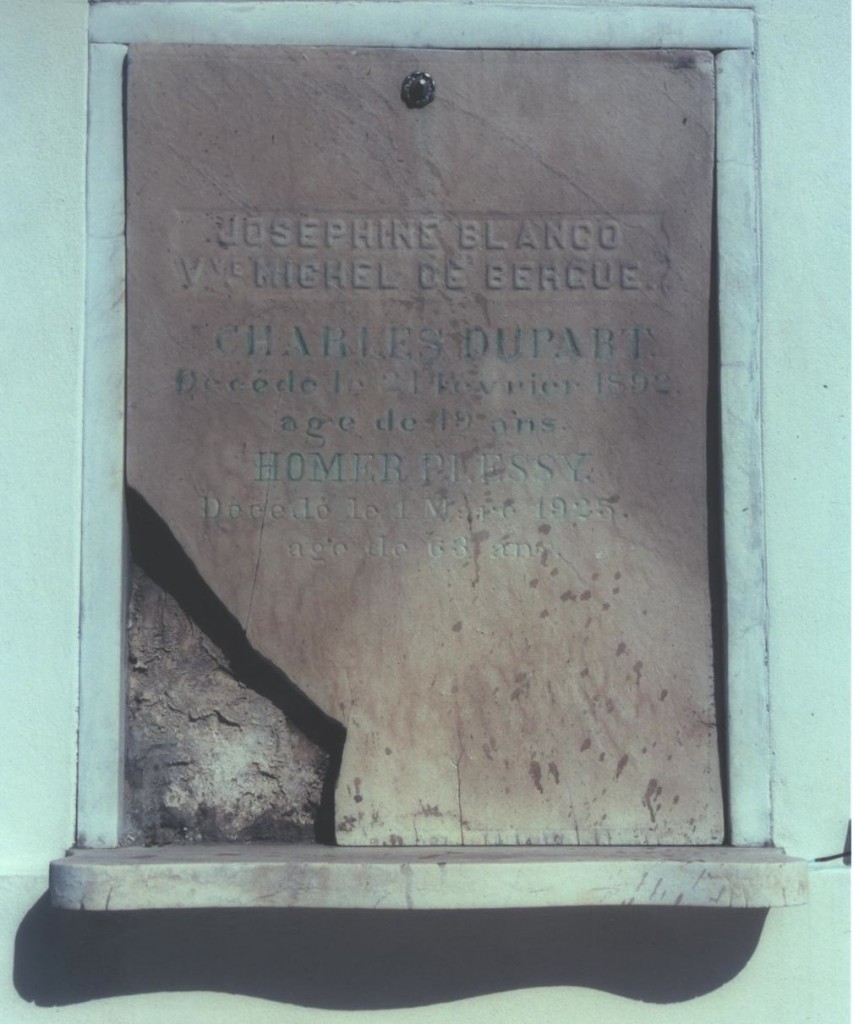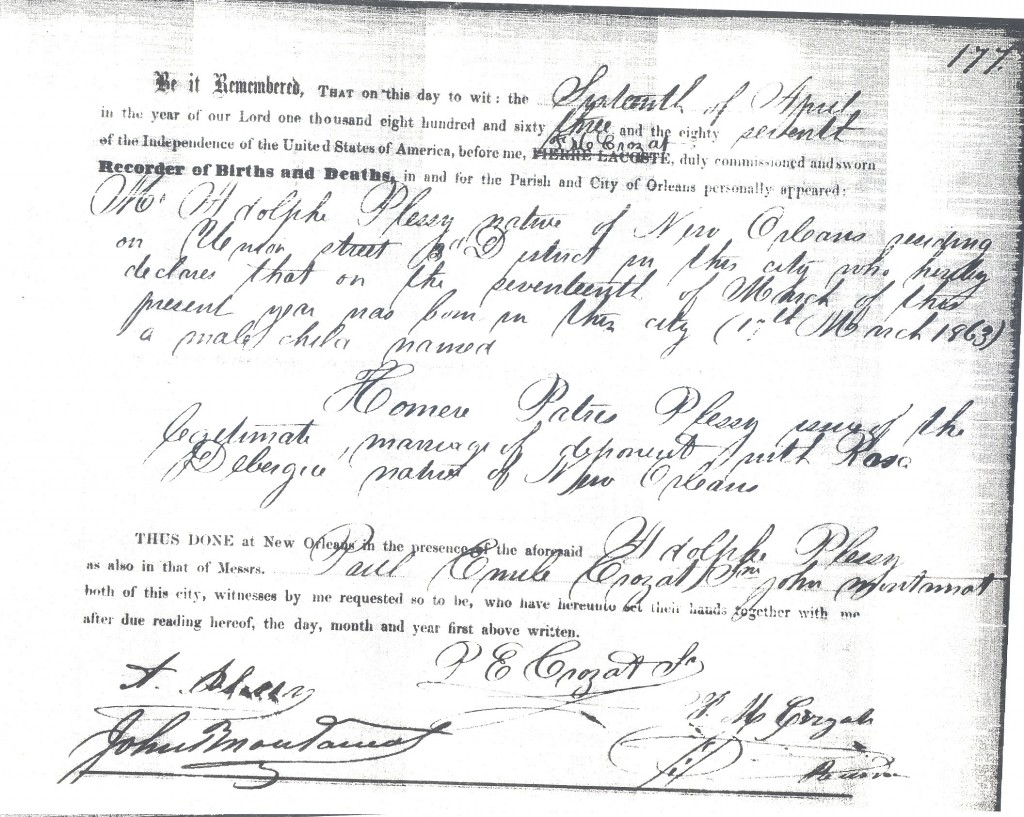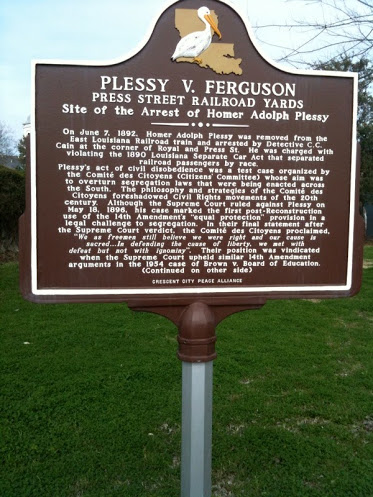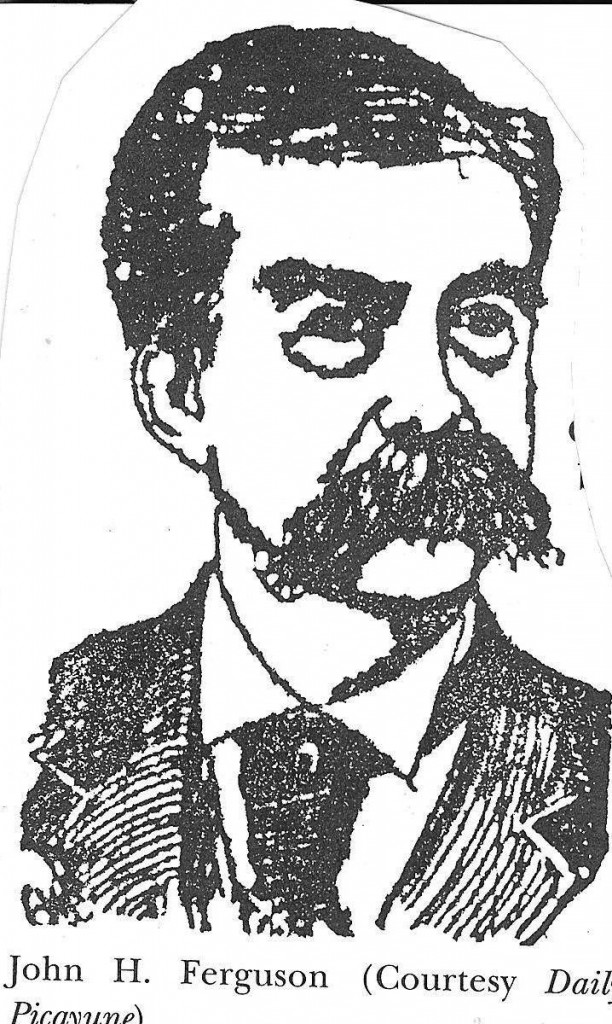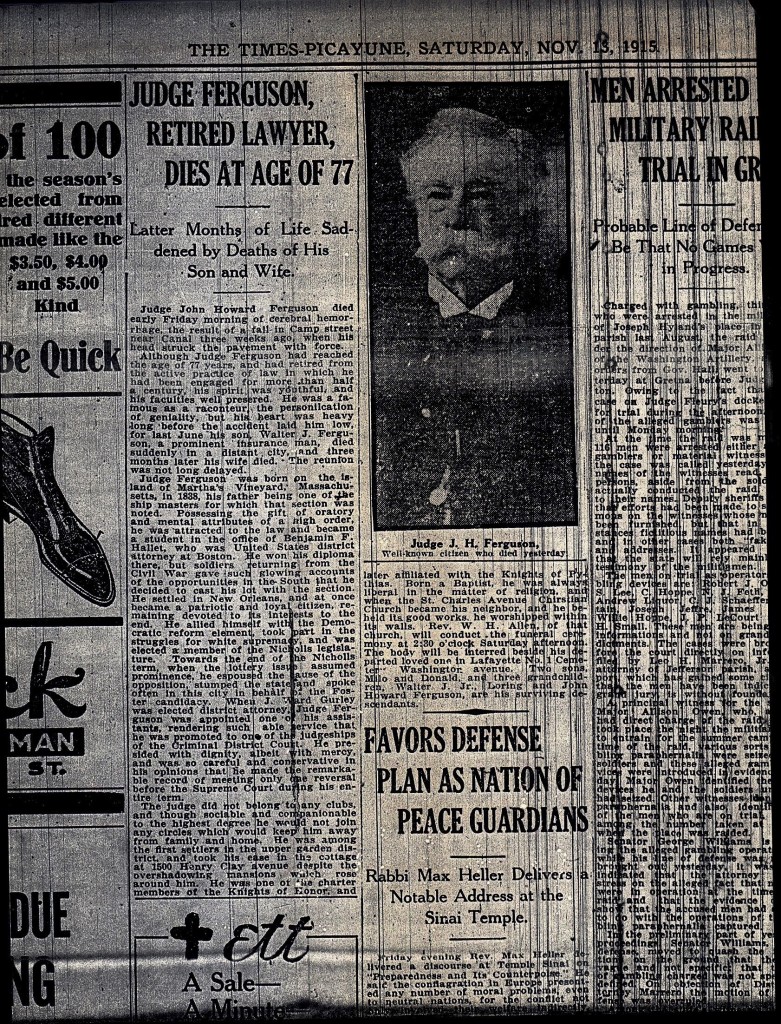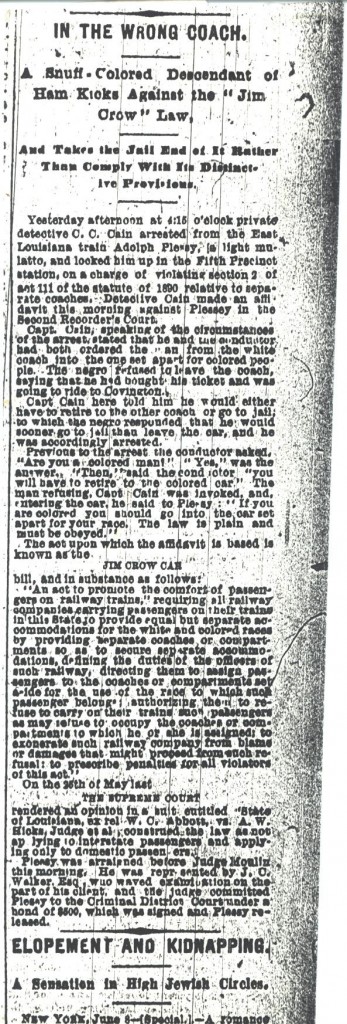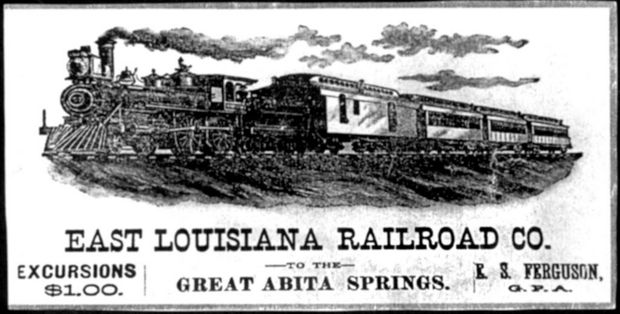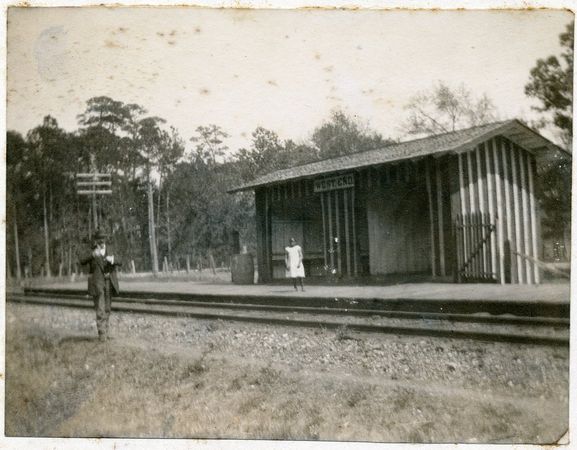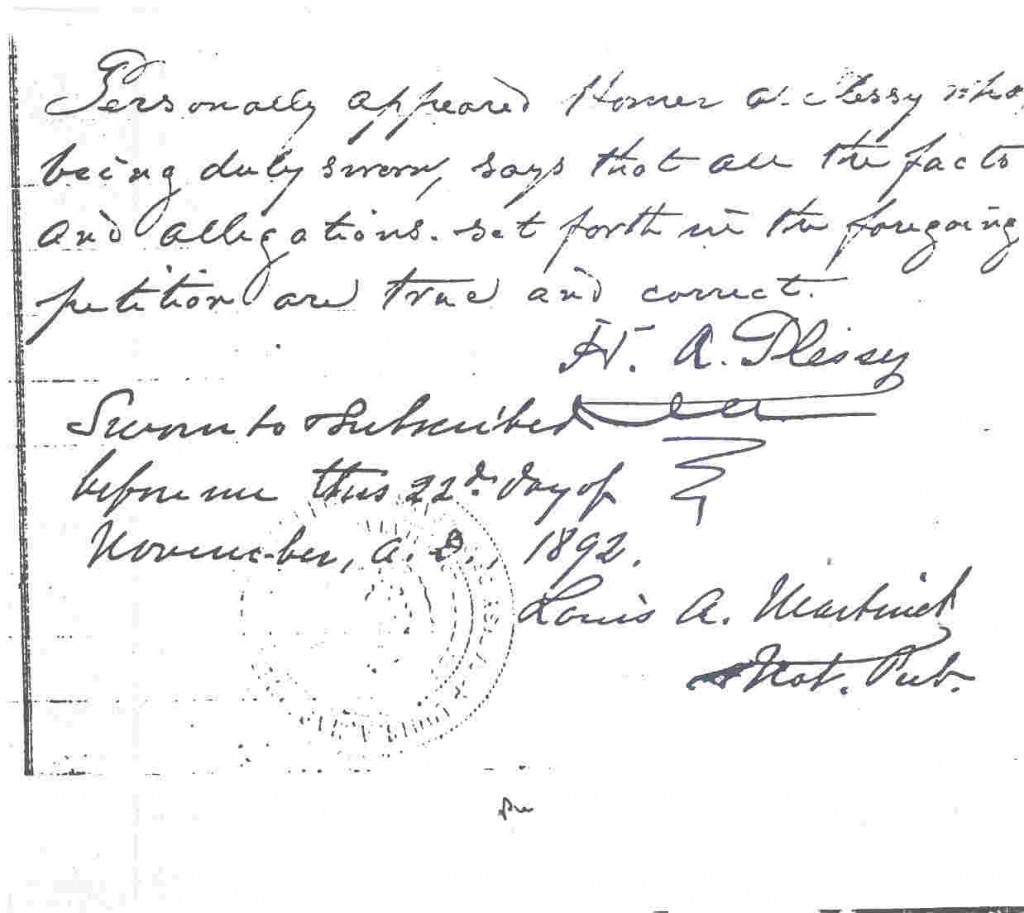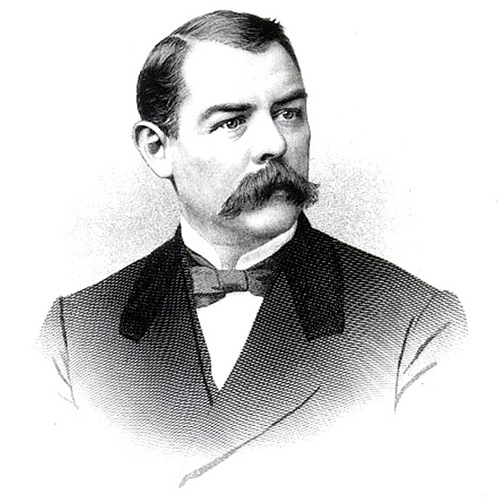The lecture notes are here.
The Civil Rights Cases
The Grand Opera House in New York City, formerly known as Pike’s Opera House, was located on the Northwestf Corner of 8th Avenue and 23rd Street, in Chelsea. It was was shut down in 1960.
Maguire’s Opera House, formerly known as San Francisco Hall, was a three-story theater on Washington Street between Kearny and Montgomery in San Francisco.
I was not able to find photographs of Nichol’s Inn in Jefferson City, MO, the Topeka Inn in Topeka, Kansas, or the Tennssee Parlor Car.
This is Justice John Marshall Harlan I, who authored the solo dissent in the Civil Rights Cases.
Plessy v. Ferguson
We actually do not have any confirmed photographs of Homer Plessy (there are some floating on the internet, but we aren’t sure if they are really him). Here is his grave.
This is Adolph Plessy’s Birth Certificate from Orleans Parish, from 1863.
This is Judge John J. Ferguson.
This is an obituary for Judge Ferguson. It makes no reference of his role in the case of Plessy v. Ferguson.
Here is a newspaper account from the Times Pacayune, June 9, 1892, with the headline, ” snuff-colored descendant of Ham kicks agains the ‘Jim Crow’ law.”
Yesterday afternoon at 4:15 o’clock private detecting C.C. Cain arrested from the East Louisiana [Homer] Adolph Plessy, a light mulatto, and locked him up in the Fifth Precinct station on a charge of violating section 2o of act 111 of the statute of 1890 relative to separate coaches. Detective Cain made an affidavit this morning against Plessey [sic] in the Second Recorder’s Court.
Capt. Cain, speaking of the circumstances of the arrest, stated that he and the conductor had ordered both the man from the white coach into the one set apart for colored people. The negro refused to leave the coach, saying that he had bought his ticket and was going to ride to Covington.
Capt. Cain here told him he would either have to retire to the other coach or go to jail; to which the negro responded that he would sooner go to jail than leave the car, and he was accordingly arrested.
Previous to the arrest the conductor asked, “Are you are a colored man!”” “Yes,” was the answer. “Then,” said the conductor,” you will have to retire to the colored car.” The man refusing, Capt. Cain was invoked, and entering the car, he said to Plessy, “If you are colored you should go into the car set apart for your race. The law is plain and must be obeyed.”
The set upon which the affidavit is based is known as the “Jim Crow Car” bill, and in substance as follows.
“An act to promote the comfort of passengers on railway trains,” requiring all railway companies carrying passengers on their trains in this State to provide equal but separate accommodations for the white and colored races by providing separate coaches or compartments so as to secure separate accommodations, defining the duties of the offers of such railways, directing them to assign passengers to the coaches or compartments set aside for the use of the race to which such passengers belong, authorizing them to refuse to carry on their trains such passengers as may refuse to occupy the coaches or compartments to which he or she is assigned; to exonerate such railways company from blame or damage that might proceed from such refusal; to prescribe penalties for all violators of this act.”
On the 25th of May last, the Supreme Court rendered an opinion in a suit entitled “State of Louisiana Ex Rel W.C. Abbott v. A.W. Hicks, Judge et al, construed the law as not applying to interstate passengers and applying only to domestic passengers.
Plessy was arraigned before Judge Moulin this morning. He was represented by J.C. Walker, Esq. who waived examination on the part of his client, and the judge committed Plessy to the Criminal District Court under a bond of $500, which was signed and Plessy released.
Plessy boarded the East Louisiana Railroad Co. train at Press and Royal streets.
Here is a photograph of the nearby West End station.
This is the order noting that Plessy’s counsel waved examination, and he was held on $500 bond. As the article suggests, Plessy posted bond, and was released.
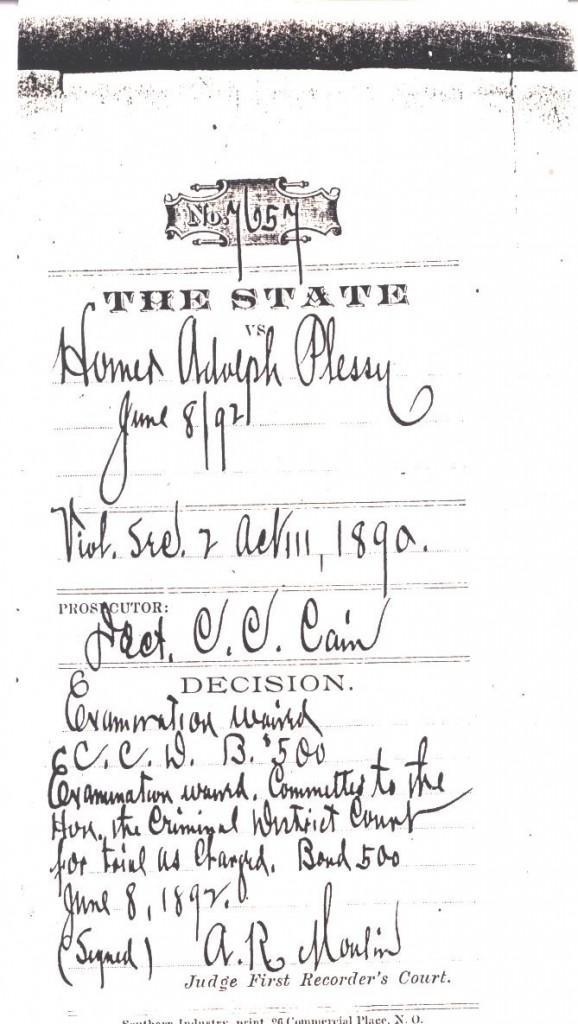
Here is an affidavit Plessy signed.
Judge Ferguson found that Louisiana could regulate railroad companies if they only operated in state boundaries. Plessy was ordered to pay a $300 fine.
Albion Tourgee´ represented Homer Plessy before the Supreme Court. He asked the Justices to imagine if they were black.
Here is the Supreme Court’s order affirming the decision of the Louisiana Supreme Court, noting the dissent of Justice Harlan.
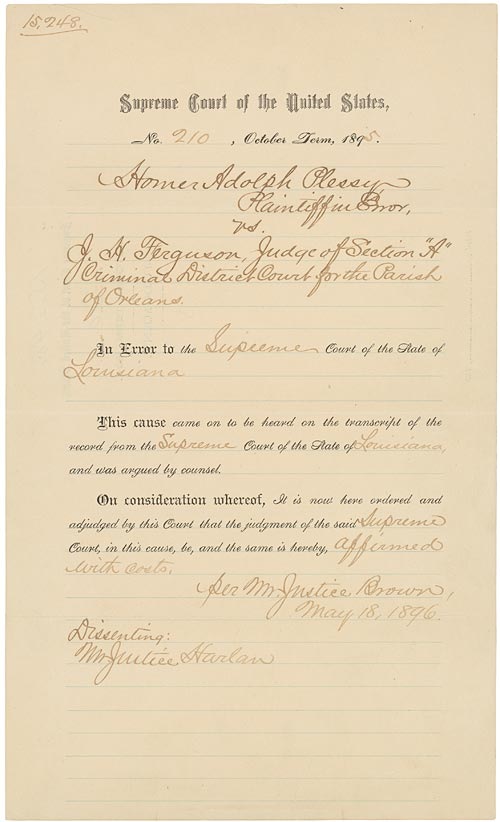
And in a story almost too good to be true, descendants of Homer Plessy and John Ferguson have started a non-profit known as the Plessy and Ferguson Foundation. Here are Keith Plessy and Phoebe Ferguson. I’ve spoken on the phone to Keith Plessy.

Here is Plessy’s grand-nephew, Keith Plessy, standing at the site where his ancestor was arrested, Press and Royal streets.
